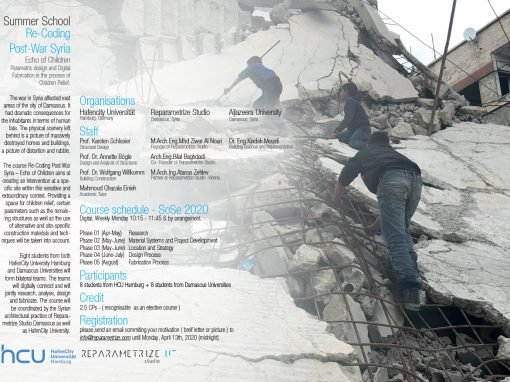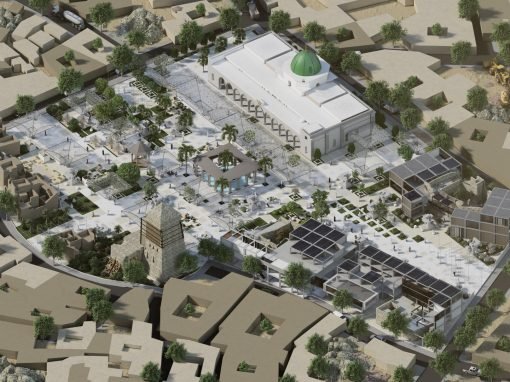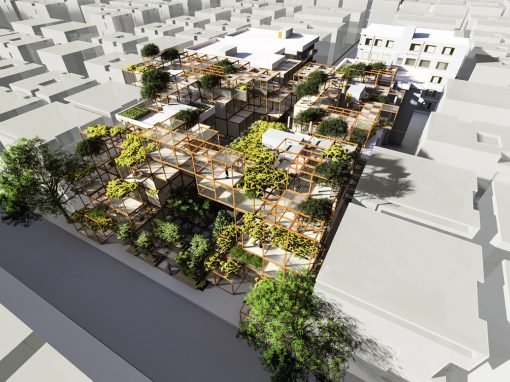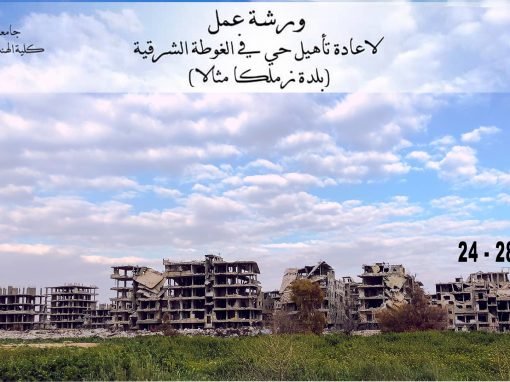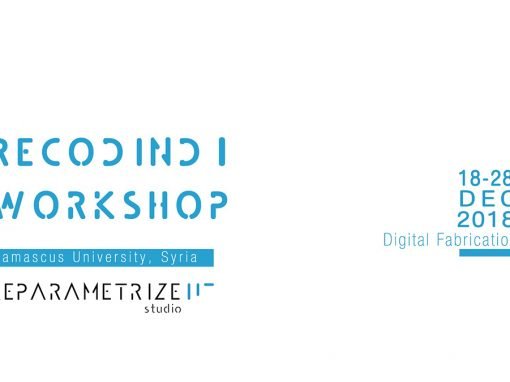Re-coding Post-War Syria
When numbers meet Arhcitecture & Culture
Re-coding post-war Syria is an ongoing research and data platform, focused on innovation and collecting comprehensive, infrastructural and socioeconomic analytics, synchronization data, by using AI driven to give a more transparent image of innovating a new methodology to regenerate the future of post-war smart cities into advanced and sustainable urban environments in a smarter way .
The pressure to achieve a rapid Post-war smart city without clear strategy and comprehensive analysis of all aspects, will cause a particularly catastrophic collapse in the interconnected social structure, services, education and health care system, leaving a long-term impact on the society.
This paper presents the current status of the Research & Documentation methodology in the Data Collection phase by the objective investigations conducted through a series of local and international workshops species developed in this research called “Re-Coding“, offering consequent direct ground surveys, statistics and documentation study of the targeted areas, merging professionalism and youth power with local community to detect an open source data used as a tool to re-generate a precarious area towards a new methodology.
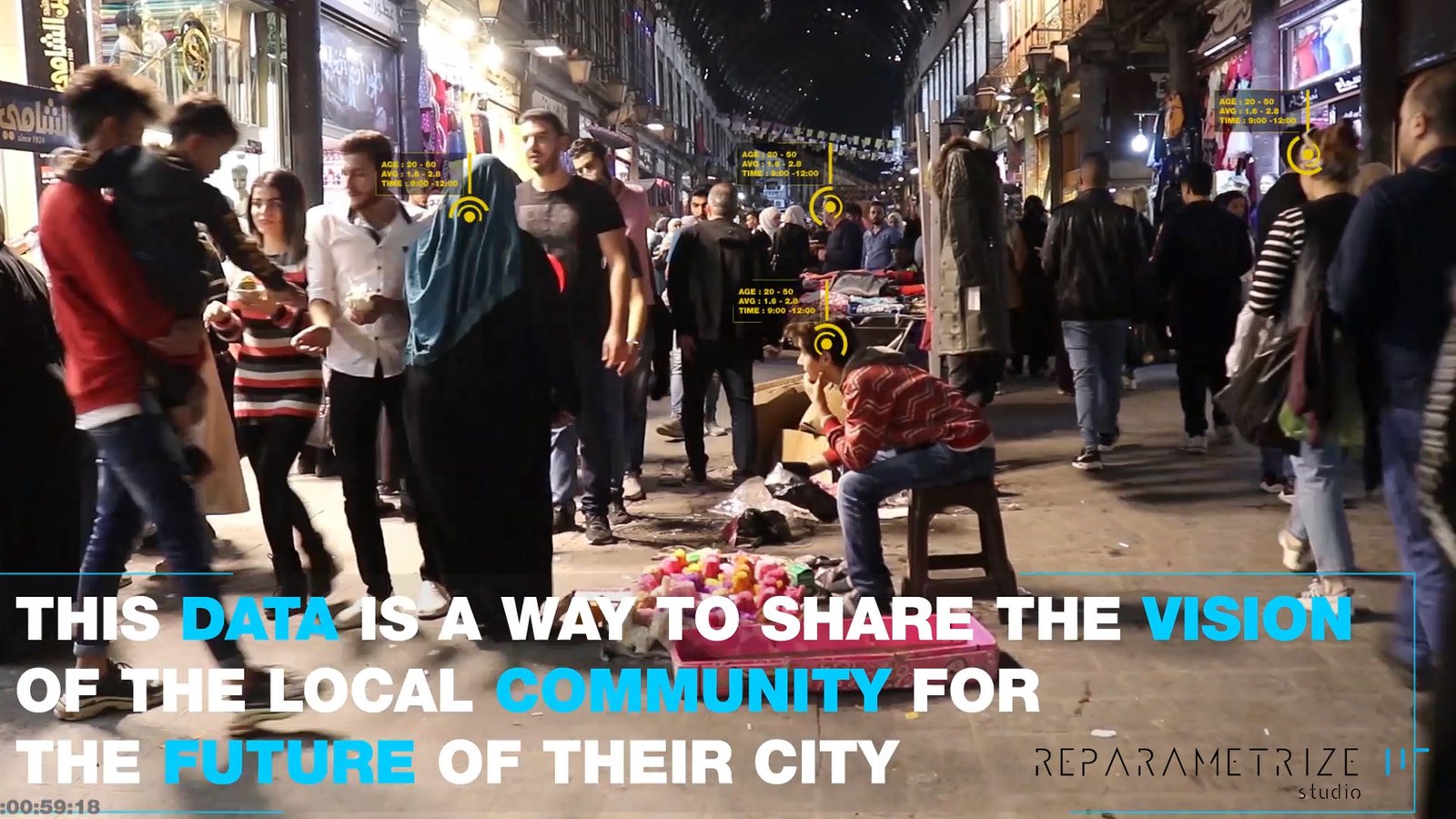
The research of RE-CODING POST WAR SYRIA aims to give a more transparent image of innovating a new methodology to regenerate the future of post-war smart cities into advanced and sustainable urban environments in a smarter way instead of bringing back lifeless structures and shelters to life . Involving the local communities in the rebuilding process is an important issue, in order to create strategies and data platform that can help professionals, companies and governments to be inspired and envision meaningful and realistic solutions to upgrade urban areas in Syria and the other cities in their redevelopment plans with smart infrastructures, as well as using advanced 3D technologies and socioeconomic data to scan destruction and analyze the existing urban fabric, and data synchronization by using AI driven, to accurately analyze large social and structural data volumes and upgrade the existing infrastructure into smart grid in a very short period of time with limited resources,to support economic development and human well-being, with a focus on affordable and equitable access for all towards a new life again.

The research aims to create a strategy offering consequent objective investigations, direct ground surveys, statistics and documentation study of the targeted areas, merging professionalism and youth power with local community to ensure that all members of society are accounted for in the Post-war reconstruction, as effective members in the recovery process of post-war cities ,this strategy will be an open source data used as a tool to re-generate a precarious area towards a new methodology.
The method used is research & documentation of socioeconomic data and the current status of the targeted area, by the objective investigations and walking around in the postwar district, meeting the local inhabitants, getting an impression of their everyday life, getting an understanding of the site, its characteristics of circulation, social structure and urban fabric.
This method was conducted through a series of local and international workshops called ‘Re-Coding’, in collaboration with Universities to provide participants with an overview and expertise on the rehabilitation of the post-war areas,and involves the local community to understand their needs and expectations by consequent of collecting data, direct ground surveys, and documentation study to estimate the statistics of the affected area.
This information serves as an important database on which to begin the proposals for post-war Syria. The responsive and dynamic analysis allows us to dissect the temporal tendencies of the strategy,which can help policy makers to make redevelopment plans which does not rely on complete demolition but uses the existing (still useful) urban fabric,resulting in a very cost effective and much more sustainable post war redevelopment ,and learn the advantages and disadvantages from similar situations and strategies followed by other countries that suffered from war.
We are on ArchDaily , Dezeen , Architectural Digest Middle East ,Gradnja
